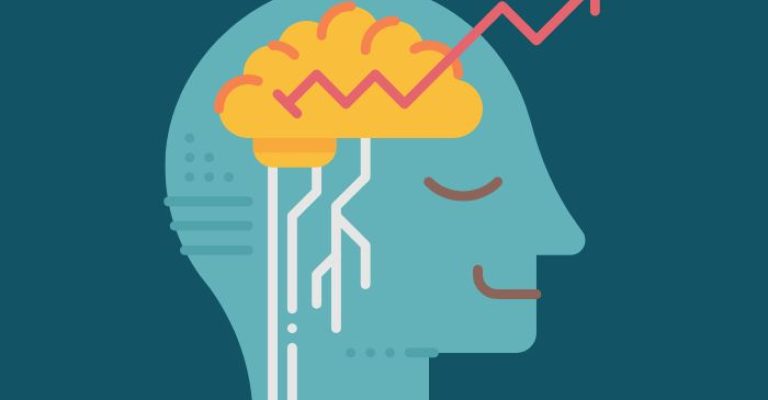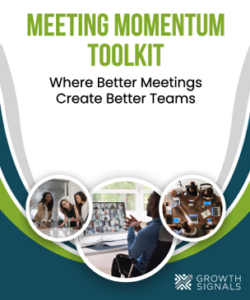Having a growth mindset is important for building resilience in employees because it allows them to approach challenges and setbacks with a positive and constructive attitude.
What is a Growth Mindset?
A growth mindset, popularized by Carol Dweck in her book, Mindset: The New Psychology of Success, is a belief system that individuals can improve their abilities and skills through hard work, perseverance, and dedication.
People with a this mindset believe that their intelligence, talents, and abilities are not fixed but can be developed over time.
This mindset is based on the idea that success is the result of effort and learning, rather than innate talent or intelligence.
Individuals with a growth mindset tend to embrace challenges and view them as opportunities to learn and grow.
They see failure as a natural part of the learning process and are not discouraged by setbacks.
Instead, they use setbacks as an opportunity to reflect, learn, and try again.
They believe that with hard work and persistence, they can overcome any obstacle and achieve their goals.
On the other hand, people with a fixed mindset believe that their abilities and talents are innate and cannot be changed.
They tend to avoid challenges and see failure as a reflection of their abilities.
They may give up easily when faced with setbacks and believe that they are not capable of achieving their goals. This mindset can limit an individual’s growth and potential.
Developing a growth mindset requires a conscious effort to change one’s beliefs and habits.
It involves a willingness to embrace challenges, take risks, and learn from mistakes.
It also requires a commitment to continuous learning and self-improvement.
By adopting a growth mindset, individuals can overcome obstacles, achieve their goals, and reach their full potential.
How Does a Growth Mindset Relate to Resilience in the Workplace?
A growth mindset is closely related to resilience as it enables individuals to develop the skills and attitudes necessary to overcome challenges and setbacks.
It involves developing coping strategies and being able to maintain a positive outlook in the face of adversity.
A growth mindset is an essential component of resilience. It provides individuals with the mental tools they need to face challenges with confidence and determination.
Individuals with this mindset view challenges as opportunities for growth and learning.
They believe that their abilities and skills can be developed through effort and hard work.
This belief enables them to take on challenges and setbacks with a positive and constructive attitude, rather than being discouraged by them.
As a result, they are more likely to persevere in the face of obstacles, and their resilience is strengthened.
A growth mindset also helps individuals to reframe their thinking about failure.
Instead of seeing failure as a reflection of their abilities, they see it as a natural part of the learning process.
They use failures as opportunities to reflect, learn, and try again. This ability to learn from failures and setbacks strengthens their resilience and helps them to adapt to changing circumstances.
Finally, a growth mindset fosters a sense of optimism and possibility.
Individuals with a this mindset believe that they can achieve their goals through hard work and dedication.
By cultivating a growth mindset, individuals can develop the resilience they need to overcome challenges and achieve their goals, even in the face of obstacles and setbacks.
Benefits of Promoting a Growth Mindset in the Workplace
Promoting a growth mindset in the workplace can have a range of benefits for both employees and employers. Here are some of the key benefits of cultivating a growth mindset in the workplace:
Increased Motivation and Productivity
When employees believe that their abilities and skills can be developed through effort and hard work, they are more likely to take on challenging tasks and be persistent in the face of obstacles.
This can lead to increased productivity and better performance.
Fosters a Culture of Continuous Learning and Improvement
When employees are encouraged to embrace challenges and view failures as opportunities to learn and grow, they are more likely to take risks and try new things.
This can lead to innovation and creativity in the workplace.
Better Collaboration and Teamwork
When employees believe that everyone can learn and improve, they are more likely to seek out and value the perspectives of others.
This can lead to better communication and collaboration, as well as a greater sense of trust and respect among team members.
Better Employee Wellbeing and Job Satisfaction
When employees feel valued and supported in their efforts to learn and grow, they are more likely to be engaged and satisfied with their work.
As a result, organizations can benefit from increased employee retention rates and reduced turnover.
Ways Organizations Can Promote a Growth Mindset
There are several ways that organizations can promote a growth mindset among their employees. Here are a few examples:
Provide Opportunities for Training and Development
This can include workshops, courses, and mentoring programs that allow employees to develop new skills and knowledge.
By investing in their employees’ skills and knowledge, employers can signal that they value learning and growth.
Encourage Employees to Take on Challenging Tasks and Assignments
Employers can encourage employees to take on challenging tasks and assignments to help them develop their skills and confidence.
This can also help employees view challenges as opportunities for growth and development.
Employers can provide feedback and support to help employees succeed in these challenges.
Create a Culture of Learning and Development
Organizations can create a culture of learning and development by recognizing and rewarding employees who embrace a growth mindset.
This can include praising employees who take on challenging tasks, rewarding employees who develop new skills, and recognizing employees who learn from failures and setbacks.
By creating a culture that values learning and growth, employers can help employees feel valued and supported in their efforts to develop their skills and knowledge.
Model a Growth Mindset as a Leader
Leaders who model a growth mindset can set an example for their employees.
This can include sharing their own successes and failures, seeking out feedback and coaching, and demonstrating a willingness to learn and improve.
By modeling a growth mindset as a leader, employers can encourage their employees to do the same. This creates a culture of continuous learning and improvement in the workplace.
Conclusion
Developing a growth mindset is crucial for building resilience in employees, as it enables them to approach challenges and setbacks with positivity and a constructive attitude.
It allows individuals to embrace challenges, view failures as opportunities to learn, and overcome obstacles, which in turn strengthens their resilience.



